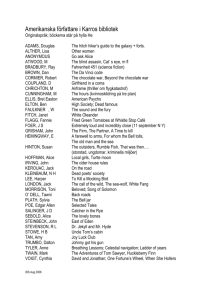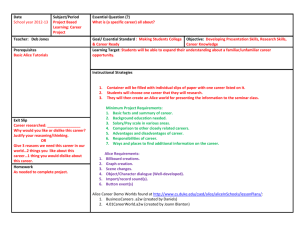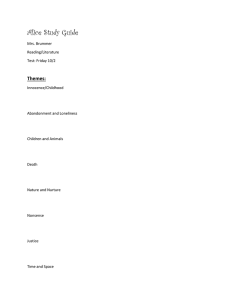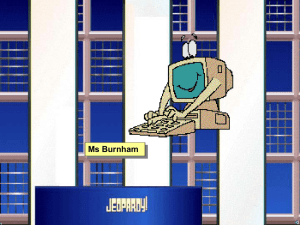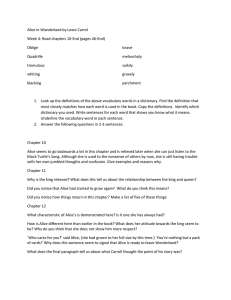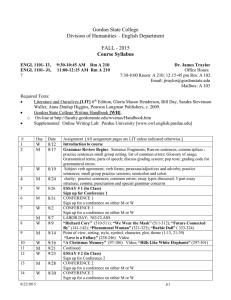prompts for essay 1 - Georgetown Digital Commons
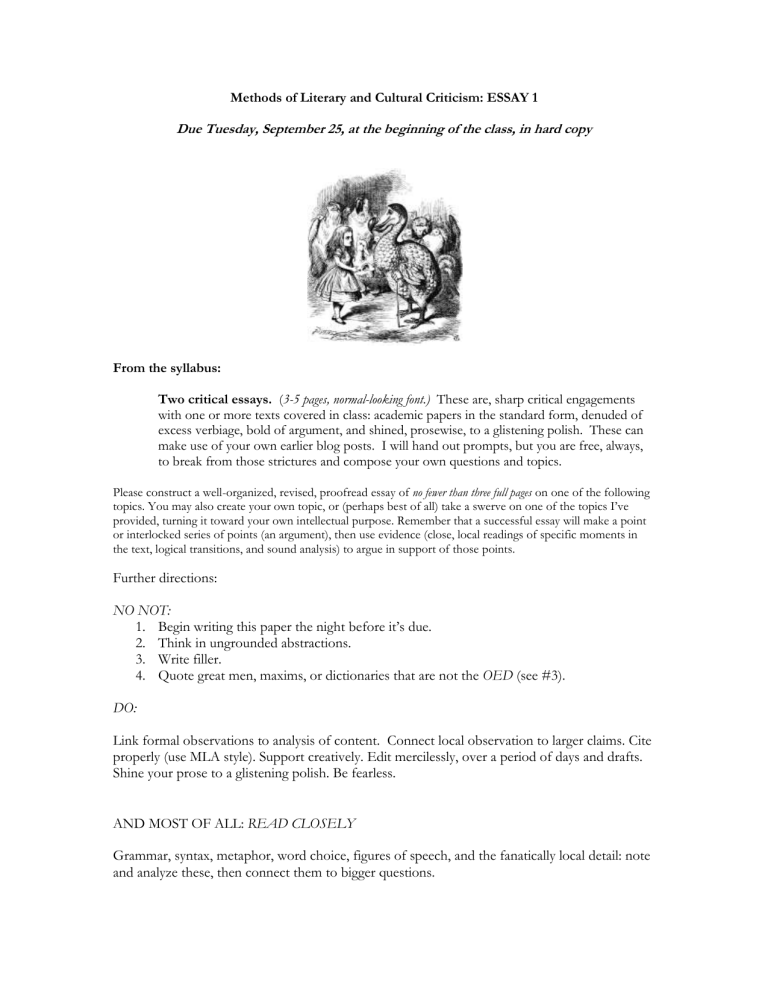
Methods of Literary and Cultural Criticism: ESSAY 1
Due Tuesday, September 25, at the beginning of the class, in hard copy
From the syllabus:
Two critical essays. (3-5 pages, normal-looking font.) These are, sharp critical engagements with one or more texts covered in class: academic papers in the standard form, denuded of excess verbiage, bold of argument, and shined, prosewise, to a glistening polish. These can make use of your own earlier blog posts. I will hand out prompts, but you are free, always, to break from those strictures and compose your own questions and topics.
Please construct a well-organized, revised, proofread essay of no fewer than three full pages on one of the following topics. You may also create your own topic, or (perhaps best of all) take a swerve on one of the topics I’ve provided, turning it toward your own intellectual purpose. Remember that a successful essay will make a point or interlocked series of points (an argument), then use evidence (close, local readings of specific moments in the text, logical transitions, and sound analysis) to argue in support of those points.
Further directions:
NO NOT:
1.
Begin writing this paper the night before it’s due.
2.
Think in ungrounded abstractions.
3.
Write filler.
4.
Quote great men, maxims, or dictionaries that are not the OED (see #3).
DO:
Link formal observations to analysis of content. Connect local observation to larger claims. Cite properly (use MLA style). Support creatively. Edit mercilessly, over a period of days and drafts.
Shine your prose to a glistening polish. Be fearless.
AND MOST OF ALL: READ CLOSELY
Grammar, syntax, metaphor, word choice, figures of speech, and the fanatically local detail: note and analyze these, then connect them to bigger questions.
POSSIBLE TOPICS:
1) Pick one poem by Gerard Manley Hopkins and perform a hypothetical, speculative interpretation of it using any two “levels” of literary reading in Richter’s target-shaped diagram of various hermeneutic (or
“interpretive”) models. You may label your interpretations “Fake Essay 1” and “Fake Essay 2” and describe the type of arguments you would make, and what evidence you would use, were you actually writing such an essay.
2) Perform a close reading of the moments of transition in Alice and/or Looking Glass, in which Alice moves from one realm to the other. What happens in these moments of transfer or carrying-over?
How does the text stage this episode of conversion, and (this is the real challenge) what is at stake in this transition?
3) Perform a close reading of the moments of conversion or carrying-over that Freud describes in “The
Interpretation of Dreams”: what are the “levels” in Freud, and what happens in the transition between them?
4) Combine questions 2 and 3 to make a super-essay about metaphor (“carrying-over”), converstion, and translation in Carroll and Freud.
5) Why is Alice a girl? Or, more generally, what work does gender do in Alice? Consider, perhaps, the social conventions made visible in the novel, the role of class, and/or the differences between
Wonderland and the world above the rabbit hole.
6) In what sense does Alice’s journey represent a journey into another structure of language or meaning or what we called in class, another “regime of signification”? Choosing specific moments around which to frame your essay, describe the friction or interface between the worlds of “sense” (bourgeois
Victorian propriety) and of “nonsense.”
7) Is Freud in love with Irma? What evidence tells you so?
8) Is Freud a good reader? What evidence tells you so?
9) Marx calls commodities “social hieroglyphics.” In what sense are they like texts, calling for hermeneutic disencryption? You may choose to focus your essay on only Marx, or examine the episode of enchanted commodity-exchange in chapter 5 of Through the Looking Glass.
10) Make an argument about the importance of games and/or systems of rules in Alice in Wonderland.
Why are these organized and socially-enforced sets of conventions important to the conceptual content of the novel?
11) Alice is about sex. Discuss this proposition with attention to things like the role of appetites, desire, secret gardens, attraction, and “burning.” Enrich your analysis from concepts and readings from class.
12) Alice about language? Discuss this proposition with attention to the role of tropes, puns, confusions, jokes, and wordplay. Enrich your analysis with concepts from readings & class.
13) Alice about violence and authority. Discuss this proposition with attention to things like power, size, the enforcement of meaning, eating, and beheadings. Enrich your analysis with concepts from readings & class.
14) Alice is a policeman for the bourgeois order, a defender of the status quo. Discuss this proposition using attention to Eagleton’s critique of English as ideology, in “Rise of English.”
15) Deleuze’s reading of the obsession with “surfaces” in Through the Looking Glass positions it as a countermodel to the diagrams of depth-penetration that Alice shares with Marxian and Freudian models of hermeneutics. What do you make of this distinction between going down the rabbit hole versus through a looking glass. What is the conceptual distinction between these? Why does it matter?
16) Choose a small section of either Alice or Looking Glass that you find particularly interesting in terms of language, grammar, or punctuation. Find that section in at least two audiobook versions of the same text (check youtube.com, librivix.com or bookshouldbefree.com for free audio versions of the book) and analyze the way it is read aloud. In what ways does the specificity of the medium determine the content of this passage?
17) Perform a close reading of Jabberwocky, paying special attention to the role of conventions, “literary language,” and framing that Culler discusses in his chapter, “What is Literature.” Does this poem
“make sense”? Can we “make it out” (as Alice says)? If so, why? If not, why not? And if something different from those options, what?
